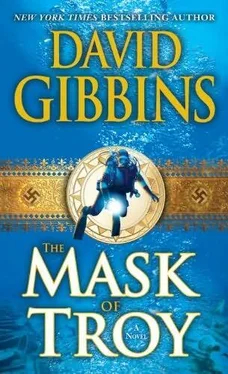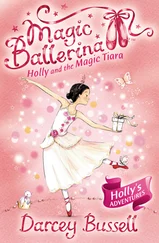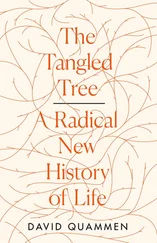David Gibbins - The Mask of Troy
Здесь есть возможность читать онлайн «David Gibbins - The Mask of Troy» весь текст электронной книги совершенно бесплатно (целиком полную версию без сокращений). В некоторых случаях можно слушать аудио, скачать через торрент в формате fb2 и присутствует краткое содержание. Жанр: Триллер, на английском языке. Описание произведения, (предисловие) а так же отзывы посетителей доступны на портале библиотеки ЛибКат.
- Название:The Mask of Troy
- Автор:
- Жанр:
- Год:неизвестен
- ISBN:нет данных
- Рейтинг книги:3 / 5. Голосов: 1
-
Избранное:Добавить в избранное
- Отзывы:
-
Ваша оценка:
- 60
- 1
- 2
- 3
- 4
- 5
The Mask of Troy: краткое содержание, описание и аннотация
Предлагаем к чтению аннотацию, описание, краткое содержание или предисловие (зависит от того, что написал сам автор книги «The Mask of Troy»). Если вы не нашли необходимую информацию о книге — напишите в комментариях, мы постараемся отыскать её.
The Mask of Troy — читать онлайн бесплатно полную книгу (весь текст) целиком
Ниже представлен текст книги, разбитый по страницам. Система сохранения места последней прочитанной страницы, позволяет с удобством читать онлайн бесплатно книгу «The Mask of Troy», без необходимости каждый раз заново искать на чём Вы остановились. Поставьте закладку, и сможете в любой момент перейти на страницу, на которой закончили чтение.
Интервал:
Закладка:
What he had said to Jeremy earlier was too easy, too glib. The Trojan War was not a clash of civilizations, of east and west. Troy was a crucible for all mankind, for men to do their worst. He looked out from his new vantage point high above the plain, to the north-east. Darkness was enveloping the Gallipoli peninsula, blotting out the afterglow of dusk; it was the darkness of an impending storm that had been building up all afternoon. Distant lightning flashed on the horizon, revealing cavernous folds in the clouds. There was a far-off rumble, whether of thunder or the fighter jets that had streaked overhead all day he was not sure. War was never far from this place. He remembered what he had smelled that afternoon, the smell of ancient burning in that pyre against the wall.
He looked up and saw the shadowy shapes of a pair of birds flying west, fleeing the storm, their wings beating the still air. It was going to rain, but he would stay here until it began, wait for Jack. He took off his camera, stowed it in its bag, sat down and nursed his aching knees for a moment, then reached over and rolled up the plastic cover on the wall, revealing the extraordinary fresco of the lyre-player. He stared at it, still astonished at what he had found. The lyre-player seemed to be an observer, looking over the dark plain just as he had been doing, standing apart from history: Auden’s mother earth, remaining immutable as gods and men came and went.
The music of the lyre. Dillen remembered Jack’s passion for the Shield of Achilles, that evening over whisky on Seaquest II. Before they had gone up on deck, Dillen had read out Homer’s description of the pastoral scenes on the shield: And in their midst a boy made pleasant music with a clear-toned lyre, and to it sang sweetly the Lindos song. The scene was a tipping point in the Iliad: the old order was about to go, the age of heroes about to end. The music of the lyre, the music of the child, changed from pleasant melody to lament, from joy to despair. The shield itself was a metaphor for the book: an ornament, yet concealing within it a reality known to the poet, the grim reality of war, the pity of war.
Dillen thought about the Ilioupersis, the extraordinary ancient text they had found, the lines that still remained for him to translate. For the first time in three thousand years people would know what had really happened here: a reality the poet had recorded for poetry’s sake but then put away, its message perhaps unbearable, too bleak and pitiless. Dillen looked out over the darkness, over the plain of Ilion towards Gallipoli. But had the poet been right? What if his poem had been read, a warning from history, a warning of what men might do, unrestrained by gods and honour and nobility? Would the young men of 1914, of 1939, have looked to battle not excited by images of heroic contest, images of Achilles and Hector, but overwhelmed by horror, fearful of impending apocalypse? Would they have looked to battle at all? Would war, total war, war without honour or glory, have been extinguished millennia before, here below the shadow-girt walls of Troy?
Dillen went over to the corner of the excavation and took the cover off his own lyre, then carried it back to where he had been sitting. He balanced it on his right knee, just as the player was doing in the painting, holding it with his right hand and reaching over with his other hand for his flashlight, twisting it on and aiming it at the painting. He wanted to study the angles, the hand positions of the player, to emulate it exactly. He shifted slightly, and in so doing panned the torch down to the plinth where the bronze arrows remained embedded in the floor. Something caught his eye. Earlier he had noticed that the soil remaining against the wall was cracking in the sun, and now he saw that some of it had fallen away. It was his mistake for not covering it over. He peered closer, leaning his lyre aside. For the first time he could see the lower edge of the painting, a plinth for the lyre-player to sit on. He stared at it. There was something else, just below. His heart began to pound. It was an inscription. He could see symbols, in red paint on the dark background. He twisted his torch for a more intensive beam, and aimed again.
There was no doubt about it. It was incredible. It was Mycenaean Linear B, the script used to write Greek in the Bronze Age, the language of the Greeks who came to Troy. The language of Achilles. The language of Agamemnon.
He could make out four symbols, simple linear signs. He knew the Linear B syllabary by heart. He had been studying it all his life. The first symbol was a simple vertical slash, with a serif above. That meant the sound O. The second, number 13 in his syllabary, was like a V with serifs, meaning ME. The third looked like a lower-case letter t, meaning RO. The fourth, number 49, was untranslated. He knew it was not a syllable, but an ideogram: a stick figure that looked like a horse, but was not, with four long legs, a stubby tail and a high curving neck. He pursed his lips, annoyed. Why did it have to be that one? Number 49 had frustrated him for years. He knew it did not mean horse, as that was represented by another ideogram. He stared at it, and then his eyes wandered up to the shadowy form of the lyre in the painting above. Something caught his eye, and he quickly picked up the torch and panned it over the painting and the inscription, comparing. The painted lyre had four strings, and a small protrusion at the top of the bridge close to the player’s face, perhaps for tuning. At the front was a curved extension, like the prow of a Bronze Age ship. Dillen shut his eyes tight, then opened them again. Of course. How could he have been so blind? Number 49 was the ideogram for lyre.
He looked at the whole inscription again: O + ME + RO + lyre. He could barely breathe. He thought hard. It was probably an aspirated O, so HO. Homeros. He whispered the word. It had been the most perplexing absence from the Mycenaean Greek lexicon, the one word scholars had sought in vain, not seeing the ideogram for what it was. The word for bard. Images came flooding into Dillen’s mind, images from the Iliad and the Odyssey: Tieresias, blind sage; Thetis, mocker of kings; Calchis, son of Thestor, far-seeing snake-prophet. Dillen suddenly felt a certainty, an intense proximity, sitting up here alone, so close to what he had been seeking all his life. That was who Homer was. That was what Homer meant. The immortal bard. Homer was all of them. All of them were Homer. Homer meant bard. Dillen remembered Jack. ‘Well I’ll be damned,’ he whispered. ‘ I’ll be damned .’
After a lifetime, he had finally done it.
He had found Homer.
He took a deep, shuddering breath, then picked up the lyre again and leaned it back against his shoulder, the flat of each hand against the strings, sensing the noiseless vibrations, unsure whether it was the movement of his hands or some fugitive wind, perhaps the passing of those birds. He thought of the conversation they had just had, about his old teacher Hugh. Looking at the image of the lyre-player, seeing the shape of the symbol, he had suddenly remembered something else from his school days, from Hugh: he had come across a half-finished drawing in one of Hugh’s notebooks, with the inscription The girl with a harp. It was a notebook with other sketches from the war, and he just knew that it had something to do with the concentration camp, from the hints of the setting, the clothes the girl was wearing, her shaven head. Dillen would ask Hugh about that too, when he went with Rebecca. He pushed the lyre up on his knee, and stared back at the extraordinary inscription on the wall. He felt as if he should stay here as long as he could, utterly still, not taking his eye off it, as if to leave would be to risk the inscription disappearing, those faded symbols vanishing back into the uncertainty of Troy. He looked at his camera, then thought better of it, fearful that the flash itself might extinguish the image. He remembered Auden’s imagery, of the camera in battle and the crow on the crematorium chimney; the bard too was seeing timeless war, recording it like the camera, like the eye of the crow.
Читать дальшеИнтервал:
Закладка:
Похожие книги на «The Mask of Troy»
Представляем Вашему вниманию похожие книги на «The Mask of Troy» списком для выбора. Мы отобрали схожую по названию и смыслу литературу в надежде предоставить читателям больше вариантов отыскать новые, интересные, ещё непрочитанные произведения.
Обсуждение, отзывы о книге «The Mask of Troy» и просто собственные мнения читателей. Оставьте ваши комментарии, напишите, что Вы думаете о произведении, его смысле или главных героях. Укажите что конкретно понравилось, а что нет, и почему Вы так считаете.












